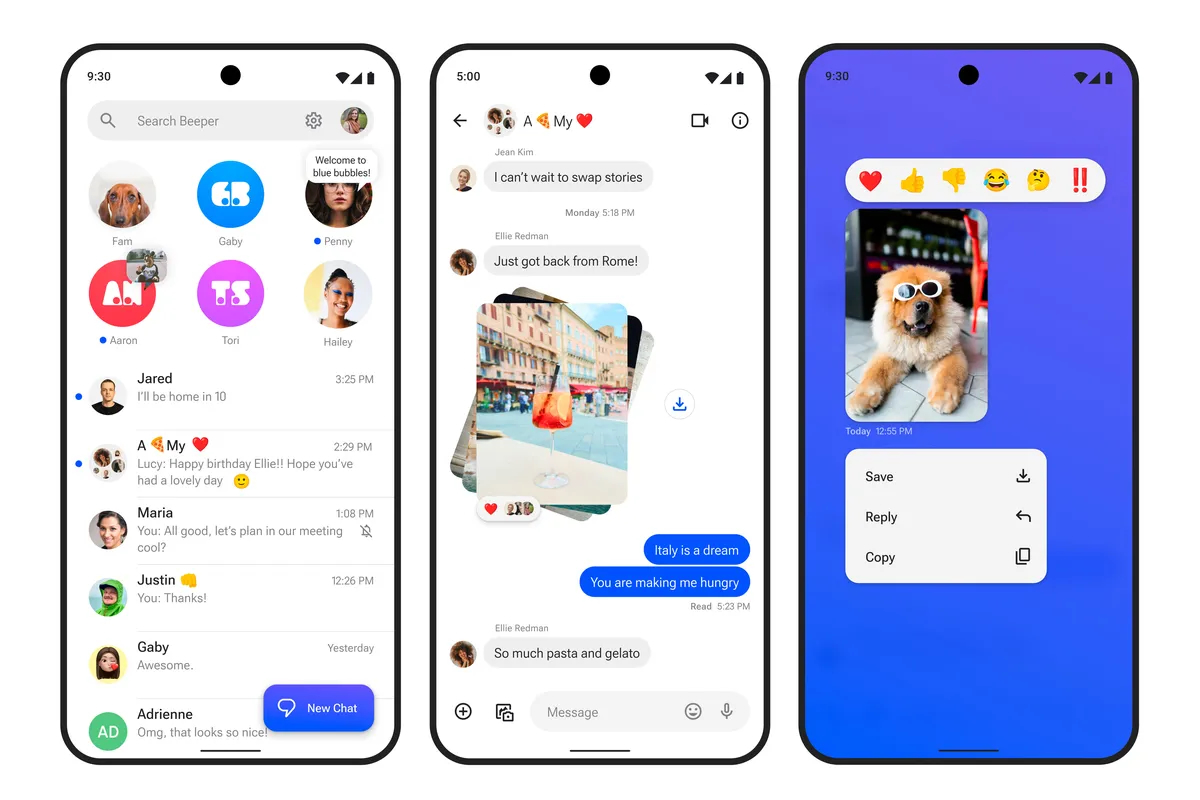
iMessage for Android app Beeper Mini is once again having connectivity issues, which it has attributed to Apple. Last night, Beeper Mini stopped working for some people, and the company confirmed that Apple was "deliberately blocking iMessages from being delivered" to approximately five percent of Beeper Mini users.

At the time, Beeper Mini said that uninstalling and reinstalling Beeper Mini could serve as a workaround while a fix was developed. As of now, issues with the Beeper Cloud service have been resolved, but some Beeper Mini users are still having connectivity issues.
On Twitter, Beeper's developers have been complaining about Apple's continued efforts to block the app, even though Apple made it clear that Beeper Mini was not going to be allowed.
"It's super annoying that Apple is penalizing their own customers and Android users who just want secure and encrypted chats," says a message on the Beeper account. "We understand if you choose to uninstall Beeper Mini at this time."
Beeper Mini launched last week, promising to bring a full iMessage experience to Android users. The app used iMessage reverse engineering to function, registering the phone numbers of Android users with Apple's own iMessage servers.
Android users were able to have "blue bubbles" in conversations with iMessage users, and all iMessage features worked, such as read receipts, typing indicators, reactions, and more. Beeper Mini essentially worked by making Android devices look like they were Apple devices, and it didn't take long for Apple to put a stop to it.
Three days after Beeper Mini launched, the app quit working, and Apple confirmed that it shut the app down. Apple said that it blocked Beeper Mini from exploiting fake credentials to gain access to iMessage, as this posed "significant risks to user security and privacy."
In a blog post, Beeper Mini's development team said that it would work to restore service, while also criticizing Apple for the decision. The team claims that iPhone customers have "less security and privacy than before" because Beeper Mini encrypted messages sent between iPhone and Android devices.At Apple, we build our products and services with industry-leading privacy and security technologies designed to give users control of their data and keep personal information safe. We took steps to protect our users by blocking techniques that exploit fake credentials in order to gain access to iMessage. These techniques posed significant risks to user security and privacy, including the potential for metadata exposure and enabling unwanted messages, spam, and phishing attacks. We will continue to make updates in the future to protect our users.
The Beeper Mini team says that it has not spoken with Apple directly. On Monday of this week, Beeper developers did find a way to get the Android app working again, but with some major changes. The updated version of the app requires users to sign in with an Apple ID (not required with the prior version), and it only supports sending and receiving messages through an email address instead of a phone number.We deeply object to the allegation that Beeper Mini 'poses significant risks to user security and privacy'. This is completely untrue. As we explained above, the opposite is actually true. Beeper Mini increases the security and privacy of both Android and iPhone customers. To prove this, we published a detailed blog post about how the app keeps data secure and private. Beeper Mini is end-to-end encrypted.
The team behind Beeper Mini is still working to find a way to get phone numbers to work with iMessage again, but Apple has blocked the backdoor that was used to register Android numbers as fake Apple users.
Many of the complaints about security and functionality from the Beeper Mini team will be solved with Rich Communication Services, or RCS, which Apple plans to adopt next year. RCS will be used for chats between iPhone and Android users, and it includes support for high quality video and images, emoji reactions, typing indicators, read receipts, and more.
If Beeper Mini does indeed find a way to get phone numbers to work and to keep Beeper Mini running, it likely will not be long before Apple puts a stop to it again. Apple has made it clear that it does not plan to willingly allow Beeper Mini to use iMessage servers.
Beeper founder Eric Migicovsky said on Twitter that Tim Sweeney and Epic "won this week against Big Tech," referencing the Epic v. Google trial, and that Beeper Mini has a chance. "We're not giving up," he wrote.
Article Link: Beeper Mini on Continued Outages: 'It's Super Annoying That Apple is Penalizing Their Own Customers'

